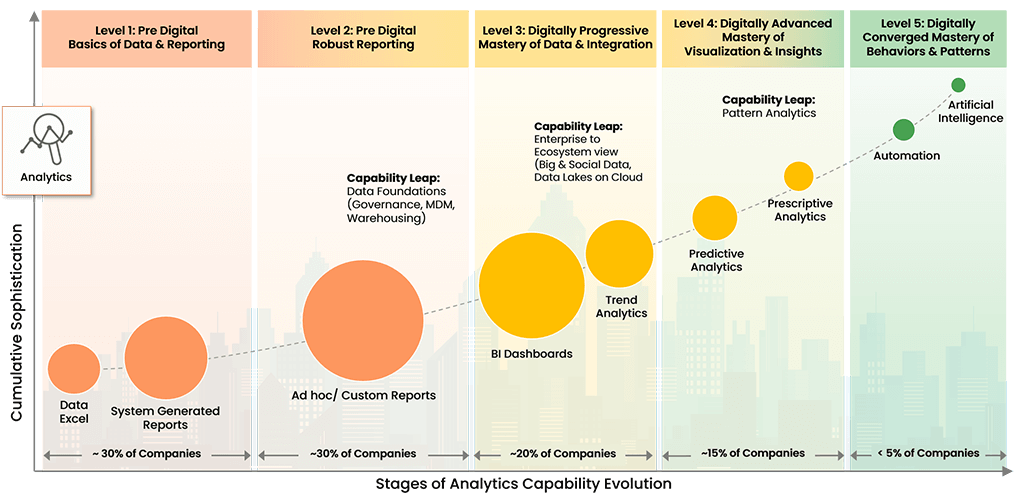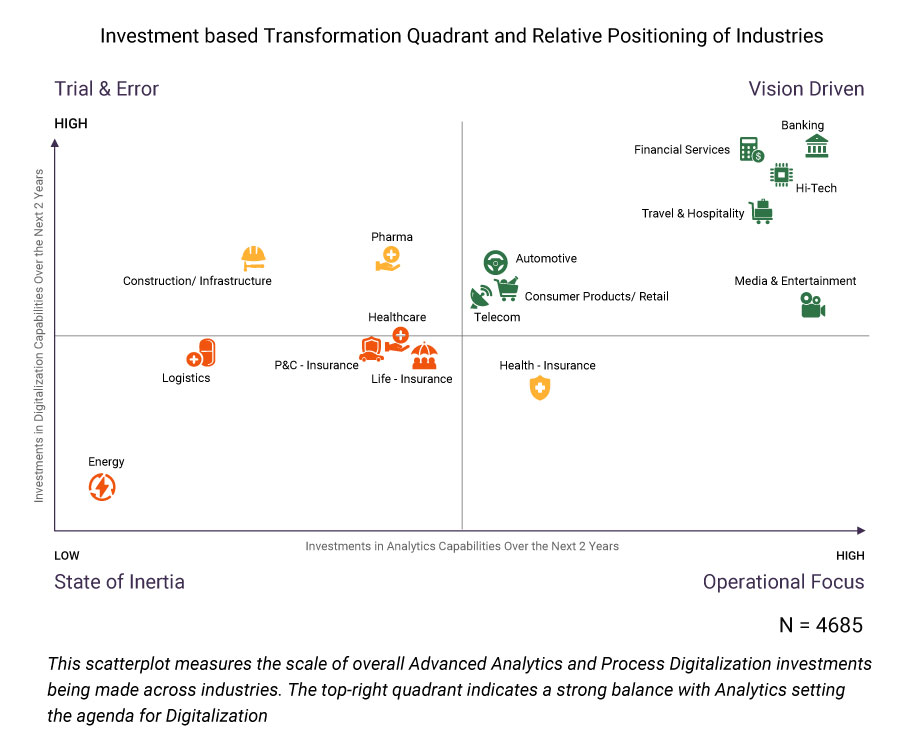Reimagining the Banking Services Customer Value Proposition
Reimagining the customer value proposition across the banking industry is essential for reinventing
the customer value chain. Cashless transactions are becoming more widespread, and this presents an
economic opportunity for disruptors with alternative business models that integrate digitalization
at its heart.
New digital banks are holistic and un-siloed, enabling a global ambition thanks to delocalization of
digital services. This is enabled through the cloud,
artificial
intelligence (AI) or machine learning (ML), and robotic process automation (RPA) technologies.
Incumbents lose their advantage in the face of these digital technologies, enabling disruptors to
provide innovative and holistic services to their customers.
While traditional banks have a safety net in the form of reputation, market presence, and regulatory
bias, these new business models are rapidly changing the banking landscape. Routine bank accounts
and ATM transactions will become obsolete, with digital-first service provision becoming the
priority for consumers. Current leaders must digitalize their internal operations and develop higher
levels of customer intimacy to brace themselves for this digital storm.
Only 7% of Companies Are Delivering on Their Transformational Initiatives
Our research has shown that 30% of companies will fail to survive this decade due to an inability to
evolve digitally. To address this negative trend, we have developed the Digital Enterprise Evolution
Model™ (DEEM).
Digital Enterprise Evolution Model™

Copyright © 2022 Trianz
DEEM allows our clients to recognize digital evolution patterns, implement benchmarking and
prioritization strategies, and initiate application management protocols to satisfy stakeholder and
market requirements.
Many Banking Firms Sit Outside the Vision-Driven Quadrant
There are a finite number of competitors in the banking industry. This increases visibility between
competitors, enabling combative innovation and proactive product-service development.
Still, most banking firms sit outside the vision-driven quadrant, putting them at significant risk in the
face of digital disruption. This demonstrates a lack of urgency among banks; despite large players
reporting significant investments in digitalization, sub-optimal execution of digital transformation
roadmaps is undermining their efforts.
Many banking companies report large investments in advanced analytics and process digitalization,
including robotic process automation (RPA). There is still room for improvement for these firms when
developing an integrated strategic approach for the digital era.
Human Capital Management (HCM) in the Banking Industry
Future banking models must address the customer lifecycle, the emergence of cashless societies, and
include the development of innovative alternative banking products or services that go beyond basic
service provision.
To enable this, banking firms need talent. Human capital management is another area with large investment
from banks, where experience is vital to navigate this complex and highly regulated industry. The
largest investment in HCM is through digitalization of processes and the adoption of advanced analytics,
assisting with the acquisition and retention of banking talent for incumbents.
To enter the vision-driven quadrant, CEOs must seek to benchmark their operations and form comparisons
against leaders in the space. CEOs can benchmark their banking operations using models like the Trianz
Digital Enterprise Evolution
Model (DEEM™).
In summation, banks must focus on reinventing their product-service portfolios, catering better to
consumer expectations, and optimizing their workforce for better customer experiences (CX) and employee
experiences (EX).
Experience the Trianz Difference
Trianz enables digital transformations through effective strategies and excellence in
execution. Collaborating with business and technology leaders, we help formulate and execute
operational strategies to achieve intended business outcomes by bringing the best of
consulting, technology experiences and execution models.
Powered by knowledge, research, and perspectives, we enable clients to transform their
business ecosystems and achieve superior performance by leveraging infrastructure, cloud,
analytics, digital and security paradigms. Reach out to get in touch or learn more.



















